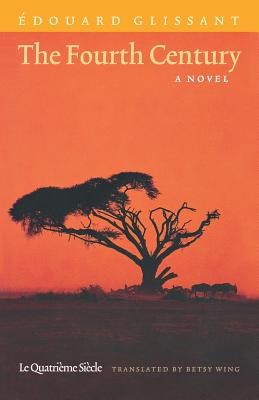
- We will send in 10–14 business days.
- Author: Edouard Glissant
- Publisher: University of Nebraska Press
- ISBN-10: 0803270836
- ISBN-13: 9780803270831
- Format: 14 x 22.9 x 1.6 cm, minkšti viršeliai
- Language: English
- SAVE -10% with code: EXTRA
Reviews
Description
The Fourth Century tells of the quest by young Mathieu Béluse to discover the lost history of his country, Martinique. Aware that the officially recorded version he learned in school omits and distorts, he turns to a quimboiseur named Papa Longoué. This old man of the forest, a healer, seer, and storyteller, knows the oral tradition and its relation to the powers of the land and the forces of nature. He tells of the love-hate relationship between the Longoué and Béluse families, whose ancestors were brought as slaves to Martinique. Upon arrival, Longoué immediately escaped and went to live in the hills as a maroon. Béluse remained in slavery. The intense relationship that had formed between the two men in Africa continued and came to encompass the relations between their masters, or, in the case of Longoué, his would-be master, and their descendants. The Fourth Century closes the gap between the families as Papa Longoué, last of his line, conveys the history to Mathieu Béluse, who becomes his heir. Ãdouard Glissant is one of the foundational figures of Francophone literature. Along with other writers from the French West Indies, he inaugurated a radical interrogation of the French literary canon from the margins of the traditionally Paris-centered literary world. His books include Black Salt: Poems and Poetics of Relation, which was also translated by Betsy Wing.
EXTRA 10 % discount with code: EXTRA
The promotion ends in 23d.20:43:23
The discount code is valid when purchasing from 10 €. Discounts do not stack.
- Author: Edouard Glissant
- Publisher: University of Nebraska Press
- ISBN-10: 0803270836
- ISBN-13: 9780803270831
- Format: 14 x 22.9 x 1.6 cm, minkšti viršeliai
- Language: English English
The Fourth Century tells of the quest by young Mathieu Béluse to discover the lost history of his country, Martinique. Aware that the officially recorded version he learned in school omits and distorts, he turns to a quimboiseur named Papa Longoué. This old man of the forest, a healer, seer, and storyteller, knows the oral tradition and its relation to the powers of the land and the forces of nature. He tells of the love-hate relationship between the Longoué and Béluse families, whose ancestors were brought as slaves to Martinique. Upon arrival, Longoué immediately escaped and went to live in the hills as a maroon. Béluse remained in slavery. The intense relationship that had formed between the two men in Africa continued and came to encompass the relations between their masters, or, in the case of Longoué, his would-be master, and their descendants. The Fourth Century closes the gap between the families as Papa Longoué, last of his line, conveys the history to Mathieu Béluse, who becomes his heir. Ãdouard Glissant is one of the foundational figures of Francophone literature. Along with other writers from the French West Indies, he inaugurated a radical interrogation of the French literary canon from the margins of the traditionally Paris-centered literary world. His books include Black Salt: Poems and Poetics of Relation, which was also translated by Betsy Wing.


Reviews